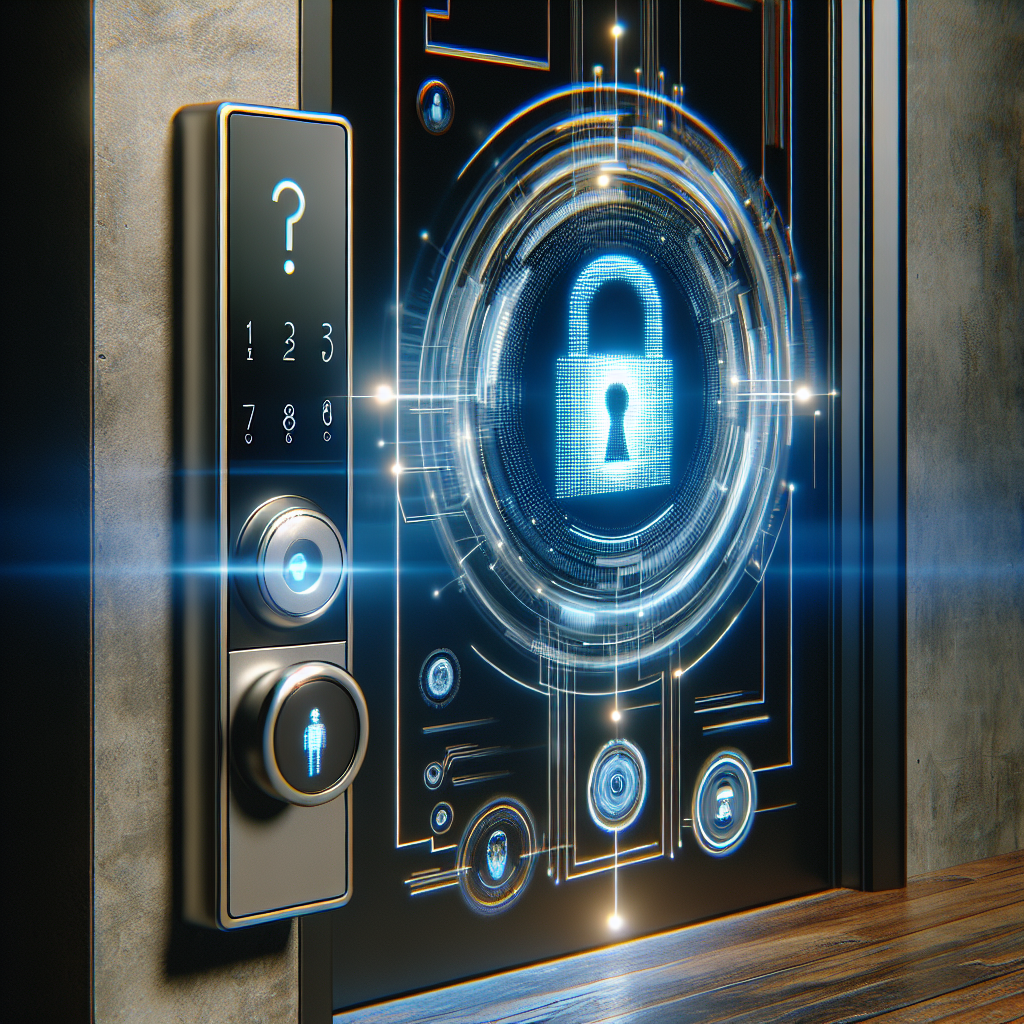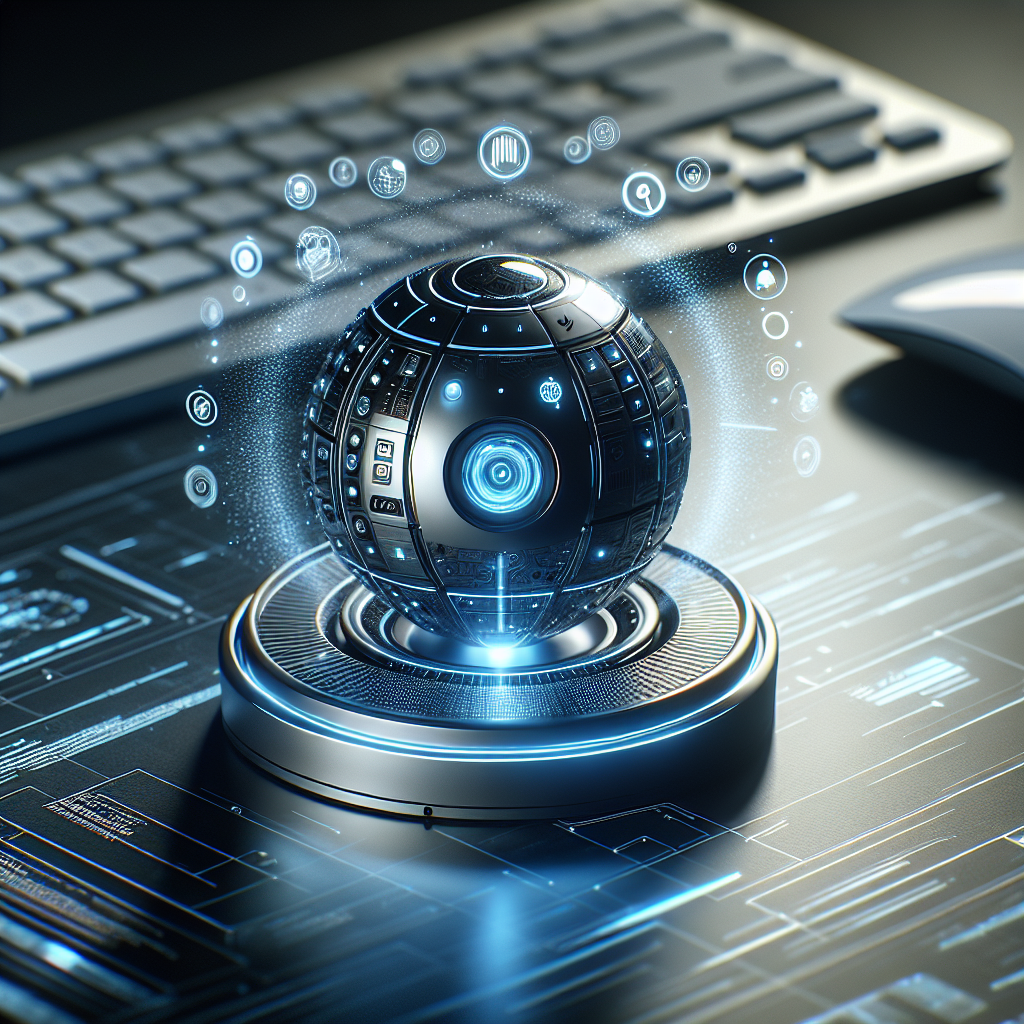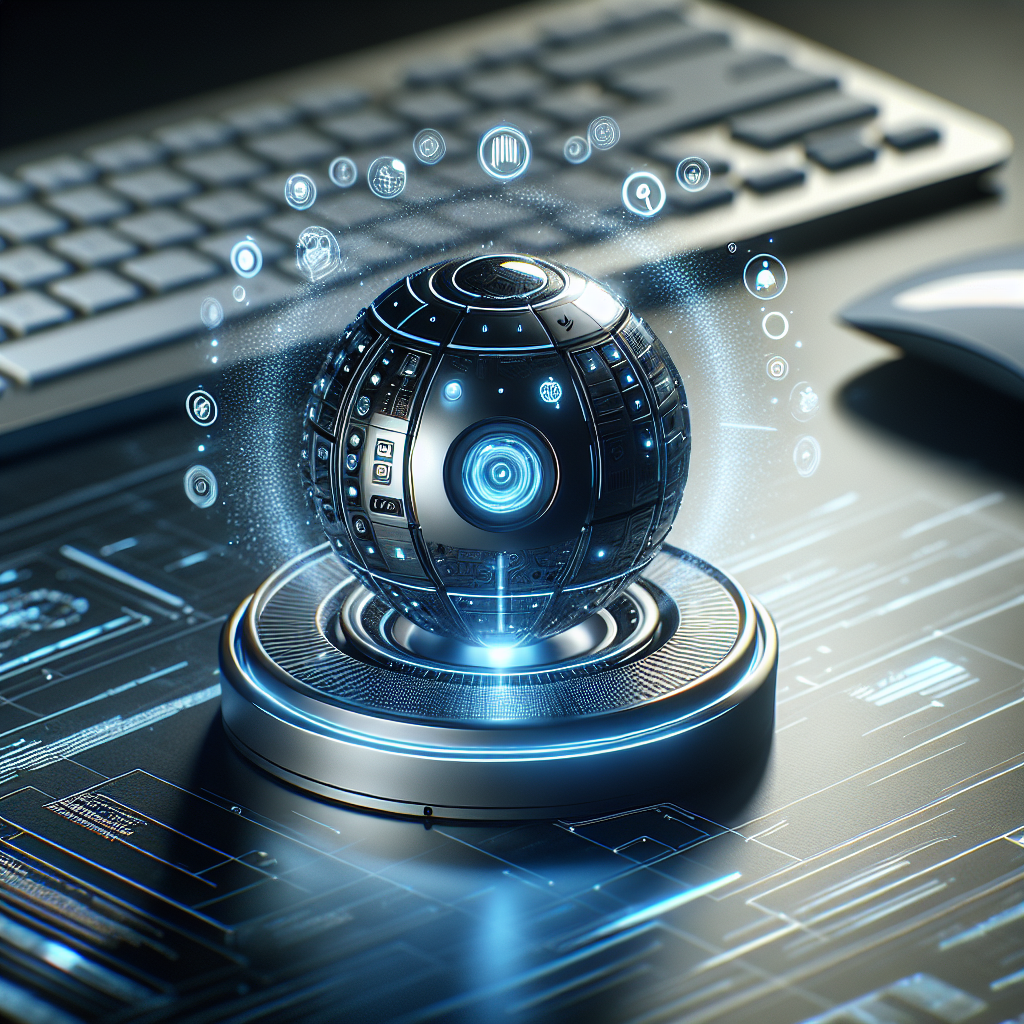Imagine a world where your home is a fortress of safety, where cutting-edge technology seamlessly protects everything you hold dear. In “The Future Of Home Security: Trends And Predictions,” we explore the exciting advancements shaping the future of home security. From smart home integration to AI-powered surveillance, discover how these emerging trends will revolutionize the way we protect our homes and loved ones. Get ready to unlock a world of possibilities as we delve into the fascinating possibilities that lie ahead.

Smart Home Integration
As technology continues to advance, the concept of a smart home has become increasingly popular. The integration of various smart devices within our homes has brought about a new level of connectivity and convenience. With smart home integration, you can now control and monitor different aspects of your home’s security system with just a few taps on your smartphone or through voice commands. This seamless connection between your security system and other smart devices is revolutionizing the way we protect and monitor our homes.
Increased Connectivity with Other Smart Devices
One of the key benefits of smart home integration is the increased connectivity it offers with other smart devices. This means that your security system can now seamlessly communicate with other devices in your home, such as your smart locks, lights, and thermostats. For example, if someone rings your doorbell, your security system can automatically unlock the door, turn on the lights, and adjust the temperature to create a welcoming environment.
Voice Control Technology
Another exciting feature of smart home integration is the use of voice control technology. With voice-controlled security systems, you can easily command your system to perform various tasks without even lifting a finger. Whether you want to arm or disarm your system, check the status of your cameras, or receive real-time alerts, all you have to do is speak a simple command, and your security system will respond accordingly. This hands-free control adds an extra level of convenience to your home security.
Artificial Intelligence and Machine Learning
Artificial intelligence and machine learning have become essential components of smart home security systems. These technologies allow your security system to learn your habits, preferences, and patterns, enabling it to provide customized security solutions for your home. For instance, if your security system detects that you have a predictable daily routine, it can automatically adjust your security settings accordingly. This intelligent adaptation ensures that your home is always protected, even when you’re not actively monitoring it.
Enhanced Surveillance Systems
In recent years, surveillance systems have undergone significant advancements, introducing new features and technologies that enhance the overall security of our homes. These advancements have made it easier than ever to monitor and protect our properties, providing us with peace of mind even when we’re away.
High-Definition Cameras with Advanced Features
Gone are the days of grainy and blurry surveillance footage. High-definition cameras with advanced features are now a standard in modern home security systems. These cameras offer crystal-clear video quality, allowing you to capture crucial details like facial features and license plate numbers. Additionally, they often come equipped with night vision capabilities, ensuring that your property is protected around the clock.
Wireless and Solar-Powered Security Cameras
The advent of wireless technology has made it possible to install security cameras without the hassle of running wires throughout your home. Wireless security cameras can be easily installed in any location, providing you with flexibility and convenience. Additionally, with the increasing emphasis on sustainability, solar-powered security cameras have gained popularity. These cameras utilize solar energy to power their operations, making them an eco-friendly and cost-effective choice.
360-Degree Coverage and Pan-Tilt-Zoom Functionality
To maximize the coverage of your surveillance system, many modern cameras offer 360-degree coverage, ensuring that no blind spots are left unchecked. This comprehensive view allows you to monitor your entire property and detect any potential threats from all angles. Additionally, cameras with pan-tilt-zoom functionality provide you with the ability to remotely control the camera’s movement and zoom in on specific areas of interest, giving you a closer look at any suspicious activity.
Biometric Security Systems
Traditional security measures, such as keys and passwords, are gradually being replaced by more advanced and secure biometric security systems. These systems use unique physical or behavioral characteristics to authenticate individuals, significantly enhancing the security of our homes.
Fingerprint Scanners and Face Recognition
Fingerprint scanners and face recognition technology have become increasingly prevalent in home security systems. These biometric authentication methods are highly secure and ensure that only authorized individuals can gain access to your property. With a simple touch of your finger or a quick scan of your face, you can conveniently unlock your doors or disarm your security system, eliminating the need for physical keys or remembering complex passwords.
Retinal and Iris Scanners
Retinal and iris scanners are also emerging as highly advanced biometric security solutions. These scanners use the unique patterns in your eyes to authenticate your identity. Retinal scans detect the patterns within your retina, while iris scans analyze the intricate patterns of your iris. By incorporating these technologies into your home security system, you can rest assured that your property is protected by the most secure authentication methods available.
Advanced Authentication Technologies
Beyond fingerprints, faces, retinas, and irises, there are even more advanced authentication technologies being developed. For instance, gait recognition technology can identify individuals based on their walking patterns, while voice recognition can analyze and verify unique vocal characteristics. These innovative authentication technologies are constantly improving, ensuring that only authorized individuals can access your home.
Home Automation and Remote Monitoring
Home automation and remote monitoring have revolutionized the way we interact with and monitor our homes. With these technological advancements, you can now have complete control over your security system and monitor your property in real-time, no matter where you are.
Automated Door Locks and Access Control
Gone are the days of fumbling for your keys or worrying about leaving your doors unlocked. With automated door locks and access control systems, you can conveniently lock and unlock your doors with the touch of a button or through a mobile app. These systems provide you with the ability to grant or revoke access to individuals remotely, ensuring that your home remains secure at all times.
Real-Time Notifications and Alerts
Home security systems now allow for real-time notifications and alerts, keeping you informed about the security status of your property. Whether it’s a motion detection alert, a door sensor trigger, or a fire or carbon monoxide alarm, you’ll receive instant notifications on your smartphone or via email. This real-time information empowers you to take immediate action in response to potential threats or emergencies, even if you’re not physically present.
Remote Monitoring and Surveillance
Remote monitoring and surveillance have become integral components of home security systems. With the ability to access live video feeds from your surveillance cameras through your smartphone or computer, you can keep an eye on your property even when you’re miles away. Whether you’re on vacation, at work, or simply running errands, this remote monitoring capability gives you peace of mind, knowing that you can always check in on your home.

Cybersecurity and Data Privacy
As our homes become more interconnected, the importance of cybersecurity and data privacy cannot be overstated. With an increasing number of smart devices being integrated into our homes, it’s essential to ensure that our personal data and digital security are protected.
Stronger Encryption and Authentication Measures
To safeguard against unauthorized access and data breaches, home security systems now employ stronger encryption and authentication measures. This ensures that your data remains secure and that only authorized individuals can access your system. By using advanced encryption algorithms and implementing multi-factor authentication methods, home security systems provide robust protection against cyber threats.
Secure Cloud Storage Solutions
With the increasing use of cloud-based technologies, home security systems now offer secure cloud storage solutions for your surveillance footage, ensuring that your valuable recordings are always backed up and accessible. Cloud storage provides an additional layer of protection against physical damage or theft of your local storage devices, ensuring that your footage remains intact and secure.
Privacy Protection in IoT Devices
As the Internet of Things (IoT) expands, it’s important to consider the privacy implications of interconnected devices within our homes. Home security systems now prioritize privacy protection by implementing features such as camera privacy modes and encrypted communication channels. These measures ensure that your personal privacy is maintained and that your data is not compromised.
Integration of AI and Machine Learning
Artificial intelligence (AI) and machine learning technologies are increasingly being integrated into home security systems, making them more intelligent and responsive. These technologies enable home security systems to analyze data, learn from patterns, and adapt their responses in real-time.
Smart Algorithms for Dynamic Threat Detection
AI-powered security systems utilize smart algorithms to identify potential threats and anomalies in real-time. By analyzing data from various sensors and devices, these systems can quickly detect suspicious activity and send instant alerts to your smartphone. For example, if a camera detects movement in an unusual area or at an unexpected time, the system can immediately notify you, allowing you to take appropriate action.
Predictive Analytics and Behavior Analysis
With the integration of machine learning, home security systems can now analyze and learn from user behavior patterns, allowing them to make accurate predictions about potential security risks. By studying your daily routines, these systems can distinguish between normal and abnormal activities, and proactively alert you to any anomalies. This predictive analytics capability provides an additional layer of security, ensuring that potential threats are detected before they escalate.
Real-Time Intelligent Response Systems
AI-powered home security systems are also equipped with real-time intelligent response capabilities. Through machine learning algorithms, these systems can learn from past events and adjust their responses accordingly. For example, if the system detects a repeated false alarm, it can adapt the alarm thresholds to reduce false positives. This continuous learning and adjustment ensure that your home security system becomes more effective and efficient over time.
Emergence of Robotics
The emergence of robotics is shaping the future of home security in ways we never thought possible. Robots are being developed and integrated into home security systems to provide an extra layer of protection and surveillance.
Robotic Guards and Patrol Systems
Robotic guards and patrol systems are becoming a reality in the world of home security. These robots are equipped with cameras, sensors, and artificial intelligence, allowing them to navigate your property and detect any potential intrusions. With their ability to patrol, monitor, and react to threats, robotic guards provide an active and 24/7 security presence that can deter intruders and protect your home.
Autonomous Security Drones
Security drones have emerged as a cutting-edge technology for home security. These small unmanned aerial vehicles (UAVs) can be equipped with cameras and sensors to monitor your property from the skies. They can autonomously patrol and capture high-quality video footage, providing a comprehensive view of your surroundings. Whether it’s detecting intruders, monitoring for any signs of fire or other hazards, or conducting routine surveillance, autonomous security drones offer an innovative and efficient solution for home security.
Robots for Intruder Detection and Handling
Robots specifically designed for intruder detection and handling are also on the rise. These robots can navigate through your home, scanning for potential dangers and intruders. Equipped with advanced sensors and cameras, they can quickly identify suspicious activity and respond accordingly. Some robots even have the capability to immobilize or detain intruders until the authorities arrive. These robots provide an added layer of security, helping to keep your home and loved ones safe.
Wireless and Sensor Technologies
Wireless and sensor technologies have transformed the way home security systems operate, providing increased flexibility and efficiency.
Advanced Wireless Communication
Wireless communication has become a standard feature in modern home security systems. With wireless technology, you no longer need to rely on physical cables to connect your security devices. This wireless connectivity allows for easy installation, provides greater flexibility in device placement, and eliminates the risk of wires being cut or tampered with by intruders. It also enables seamless integration with other smart devices within your home.
Sensor Networks and IoT Integration
Sensor networks play a crucial role in home security systems, providing the ability to detect and respond to various environmental changes and security events. These sensors can detect motion, sound, temperature, and even air quality, providing comprehensive monitoring capabilities. With the integration of the Internet of Things (IoT), these sensors can communicate with each other and with your security system, allowing for more intelligent and automated responses to potential threats.
Smart Sensors for Early Threat Detection
Advanced smart sensors are being developed to enable early threat detection and prevention. These sensors can detect patterns and anomalies in your home’s environment, such as unusual temperature changes, smoke, or even the sound of breaking glass. By capturing these early warning signs, smart sensors can quickly alert you to potential threats, allowing you to take immediate action and mitigate any potential damage.
Social Integration and Community-based Security
In an interconnected world, community-based security is gaining traction as an effective approach to home security. By integrating social platforms and engaging with your community, you can enhance the overall security of your neighborhood.
Community-Driven Surveillance Systems
Community-driven surveillance systems leverage the power of collective security. By encouraging neighbors to share surveillance footage and information, these systems create a network of interconnected security cameras and sensors. This collective surveillance allows for a broader coverage area, increasing the chances of identifying and apprehending potential intruders. It also fosters a sense of community and shared responsibility, as neighbors work together to keep their neighborhood safe.
Neighborhood Watch Apps and Platforms
Technology has facilitated the development of neighborhood watch apps and platforms, enabling residents to communicate and share information about suspicious activities in real-time. These apps provide a platform for neighbors to report incidents, share photos or videos, and notify others about potential security threats. By actively participating in these neighborhood watch programs, you contribute to the overall safety and security of your community.
Integration with Emergency Services
Community-based security systems often integrate with local emergency services, further enhancing the effectiveness of response efforts. By connecting your security system to emergency services, you can ensure that any alerts or incidents are immediately relayed to the appropriate authorities. This integration facilitates a faster response time and strengthens the overall security infrastructure within your community.
Conclusion
The future of home security is bright, with advancements in technology shaping the way we protect and monitor our homes. Smart home integration, enhanced surveillance systems, biometric security, home automation, cybersecurity, the integration of AI and machine learning, robotics, wireless and sensor technologies, and social integration all contribute to a comprehensive and dynamic home security landscape. By staying current with these trends and embracing the latest innovations, you can ensure that your home remains safe and secure in the years to come.

